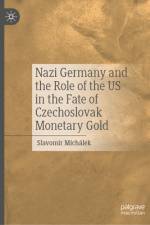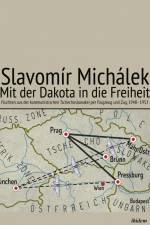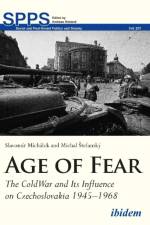av Slavomir Michalek
1 405
This book provides a detailed account of the Czechoslovak-American dispute that arose over monetary gold which was forcibly seized by Nazi Germany in the 1930s. After the Second World War, the Czechoslovak gold was found by the American armed forces in the salt mines in Merkers, Germany. Over the next 37 years, it became a part of complicated Czechoslovak-American relations, international economic trade, and political-ideological disputes and conflicts. Only in February 1982, after extensive diplomatic discussions, was a sufficient portion of the gold returned to the Czechoslovak State Bank in Prague. This book maps the story of this gold, how it was seized, blocked and finally, returned. Tracing the path of the monetary gold from its seizure by Nazi Germany in the 1930s to the last decade of the Cold War, the author outlines the main diplomatic steps taken to resolve the dispute, which framed the shape of bilateral relations between Communist Czechoslovakia and the USA.Offering a new contribution to the hisThis book provides a detailed account of the Czechoslovak-American dispute that arose over monetary gold which was forcibly seized by Nazi Germany in the 1930s. After the Second World War, the Czechoslovak gold was found by the American armed forces in the salt mines in Merkers, Germany. Over the next 37 years, it became a part of complicated Czechoslovak-American relations, international economic trade, and political-ideological disputes and conflicts. Only in February 1982, after extensive diplomatic discussions, was a sufficient portion of the gold returned to the Czechoslovak State Bank in Prague. This book maps the story of this gold, how it was seized, blocked and finally, returned. Tracing the path of the monetary gold from its seizure by Nazi Germany in the 1930s to the last decade of the Cold War, the author outlines the main diplomatic steps taken to resolve the dispute, which framed the shape of bilateral relations between Communist Czechoslovakia and the USA. Offering a new contribution to the history of the Second World War and shedding light on East-West relations during the Cold War period, this book will provide useful reading for those researching modern European history, the Cold War, and international history.




